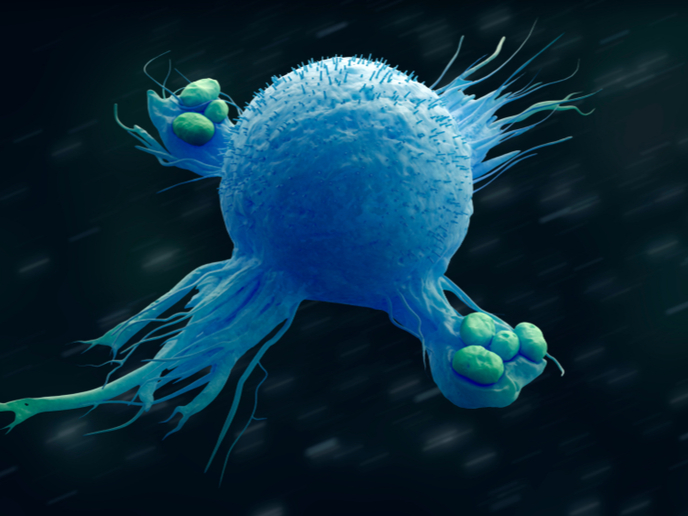Stem cells repair knee
OA is a degenerative joint disease characterised by loss of articular cartilage tissue in joints followed by bone remodelling. Studies on animal models showed that surgical implantation of adipose-derived stem cells (ASCs) facilitates repair of fibrillated cartilaginous tissue. ASCs offer a less painful and risky option compared to other cellular therapies that require the harvesting of autologous chondrocytes. EU-funded researchers tested the therapeutic efficacy of autologous ASCs on animals and humans via the project 'Adipose derived stromal cells for osteoarthritis' (ADIPOA)(opens in new window). A novel feature of this knee OA treatment is intra-articular injection of ASCs instead of surgical implantation. To begin with, project members worked on characterising and processing ASCs to optimise chondral protection through in vivo studies. Animal studies confirmed the safety, efficacy and dose response of ASC therapy. This pre-clinical data was then used to obtain necessary approvals and set up the phase 1 clinical trial on humans. Eighteen patients with knee OA requiring arthroplasty were enrolled for the phase 1 pilot study and three different ASC dose levels were tested. Clinical outcomes and magnetic resonance imaging findings showed that the low-dose group in particular had significantly improved function with reduced pain. Out of 18 patients requiring arthroplasty, only 2 opted for it a year after ASC therapy. Product safety and feasibility were also confirmed. Project activities led to several publications in international peer-reviewed journals, 12 web publications and 8 press articles. Besides interviews for radio and TV, results were also disseminated at international scientific meetings and symposia. Most importantly, one of the project partners filed a patent on the paracrine activity of the ASC. This test can rapidly predict patient response to cellular-based anti-inflammatory therapies and could be extrapolated to treat other incurable diseases having an inflammatory component. Project findings will be further tested through a phase 2B controlled trial in the future. Positive outcomes will not only benefit patients and clinicians, but also enhance EU competitiveness in the billion dollar global regenerative medicine market.







